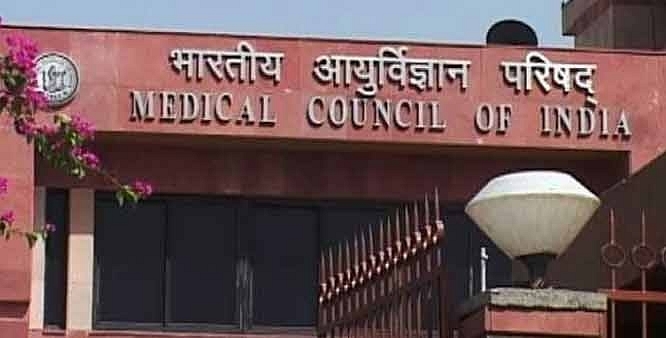Insta
MCI Launches New UG Medical Course Curriculum After 21 Years, To Be Applicable From 2019 Session

The Board of Governors (BoG’s) of the Medical Council of India (MCI) has changed UG curriculum for the first time in 21 years. (image via Facebook)
A new curriculum has been finalised for all medical colleges in India by the Board of Governors (BoG’s) of the Medical Council of India (MCI), reports The New Indian Express. It was in 1997 that the curriculum was last revised and issued the Regulations on Graduate Medical Education.
The new curriculum will be applicable from the 2019 session. The medical students in India will see for the first time in 21 years, a shift to an integrated disease-based approach with clinical exposure right from a theory-based approach.
Students from the 2019 session, will see the subjects of “pre-clinical” in the first year replaced. The pre-clinical topics, which include physiology, anatomy and biochemistry, will be replaced by a curriculum with a strong clinical and community focus.
The new curriculum aims to teach physiology and anatomy in relation with diseases, and not just as disparate subjects. The chairman of MCI’s BoG and an Niti Ayog member, Dr Vinod Paul said, "from next year, we are moving to a more international style of teaching medicine, what is known as competency-based education or problem-based learning”.
Dr Paul adds, “with the adoption of the integrated approach, students will begin to learn about diseases from the first year itself, after which students will learn Physiology and biochemistry concerning the illnesses”.
A foreword which lays the tenets of the syllabus says, “A significant attempt has been made in the outcome-driven undergraduate curriculum to provide the orientation and the skills necessary for life-long learning to enable proper care of the patient. In particular, the curriculum provides for early clinical exposure, electives and longitudinal care. Skill acquisition is an indispensable component of the learning process in medicine.”
The latest curriculum tries to align the government’s health goals with the medical education system. Further, the committee felt a need to rebuild the doctor-patient relationship, and thus included an element of communications in the UG curriculum.
Support Swarajya's 50 Ground Reports Project & Sponsor A Story
Every general election Swarajya does a 50 ground reports project.
Aimed only at serious readers and those who appreciate the nuances of political undercurrents, the project provides a sense of India's electoral landscape. As you know, these reports are produced after considerable investment of travel, time and effort on the ground.
This time too we've kicked off the project in style and have covered over 30 constituencies already. If you're someone who appreciates such work and have enjoyed our coverage please consider sponsoring a ground report for just Rs 2999 to Rs 19,999 - it goes a long way in helping us produce more quality reportage.
You can also back this project by becoming a subscriber for as little as Rs 999 - so do click on this links and choose a plan that suits you and back us.
Click below to contribute.
Latest